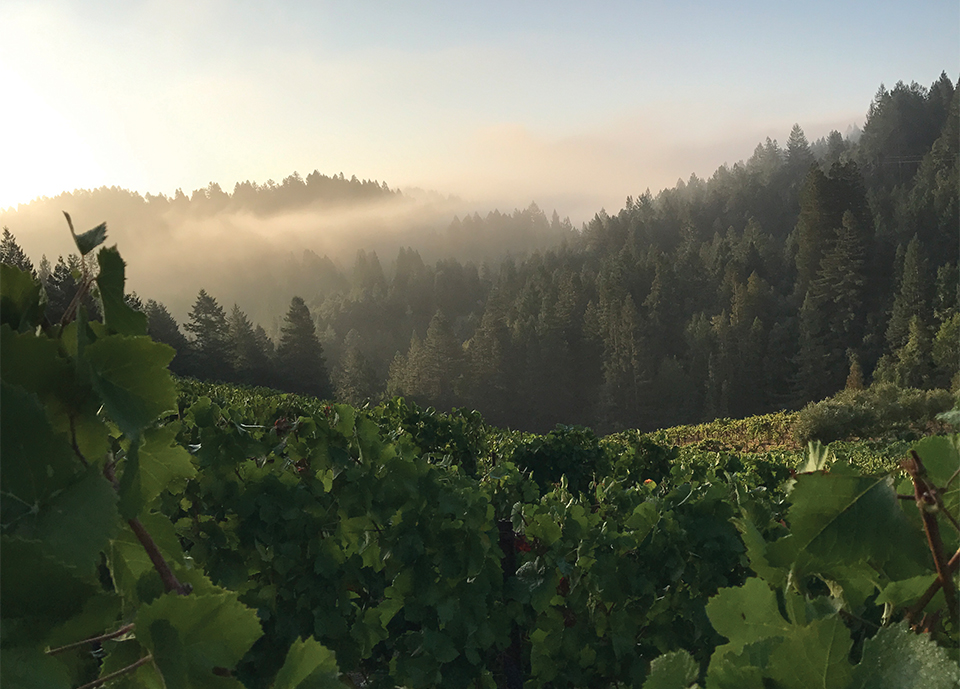What Does it Mean to be Biodynamic?

Cow horns, quartz crystals, lunar cycles and cover cropping. What do these all have in common? Biodynamic farming, of course.
Biodynamics is an agricultural philosophy based on a series of lectures from Austrian scientist, social reformer and philosopher Rudolph Steiner, written in 1924. Steiner’s thoughts on farming arose in response to the degradation of soils and a decrease in the quality of crops, following the introduction of chemical fertilizers. Steiner wanted to help refocus farmers on the value of diversity and quality, rather than merely quantity and profitability. Biodynamics is fully under the umbrella of organic farming but has an underlying recognition of spirit in nature.
I like to conceptualize agricultural philosophies as old roman buildings held up by principle pillars. Organic farms might have health, ecology, fairness and a rejection of synthetic inputs holding up their pantheon. The biodynamic pantheon has a few extra pillars that include a vision of the farm as an living organism, an emphasis on generating on-farm fertility, the use of biodynamic preparations and working in rhythms of the earth and cosmos. The material that makes up these pillars is a belief that our reality is a physical blanket draped over a spiritual world.
To summarize, biodynamics is an addition to sound, traditional farming that humans have honed throughout history.
I work for Littorai, a small, family-owned and operated winery in Sonoma, California, that focuses on vineyard designated wines from the Northern Coast. Littorai has been farming their vineyards with biodynamic practices for nearly two decades.

Compost
For me, the strongest aspect of biodynamics is the commitment to on-farm composting, utilizing inputs generated mainly from within the farm.
At Littorai, we build two 10ˇ x 100ˇ foot-long, layered, lasagna-style compost beds that only need to be turned once. The beds consist of 50 thin layers of manure, hay, vineyard pruning, pumice, sunflowers and drought-resistant grasses. This high-quality compost is spread into the vineyard before the first big rain and is our way of returning nutrients we take from grape clusters back into the soil.
Compost is a way of recycling excess materials on farms, improving soil structure and reducing or eliminating the need for chemical fertilizers.
Biodiversity
Ninety-five percent of the apple varieties that were around in the 1900s are no longer being grown in the United States. The desire for high yields and uniformity have replaced a value for diversity and quality in our foods. Where once livestock were a staple of the farm, now we have fleets of tractors. Biodynamics promotes space for companion gardens, open pastures and forested areas rather than planting crops from fence line to fence line.
Littorai’s Pivot Vineyard has three acres of vines planted amongst 12 acres of pasture for cows and sheep and 15 acres of rich oak forestland. Though there is no steadfast number for “common” land on each farm, allowing a diverse ecosystem can protect against a variety of natural pests and diseases.
Preparations
Biodynamic farmers utilize eight specific preparations that are made from quartz, cow manure and a range of different plants, most of which are matured underground in an animal sheath. These are perhaps the most obscure aspects of biodynamic farming and therefore the hardest for people to understand. Some “preparations” are made into teas and sprayed on the crops while others are integrated into the compost pile in small quantities. These “preparations” bring balance, cohesion and higher level of quality to the finished compost.
Rhythms
Every farmer since the beginning of time has been sensitive to the interaction between the sun and the earth. Seasons dictate when farmers sow their seeds and harvest their crops. Biodynamics encourages us to take a step back and look into how other celestial beings affect life on earth.
We know the moon can have enormous influences on the oceans, so is it really a stretch of the imagination that there is an effect on sap flow within plants or water in the soil?
So, what is biodynamics to a biodynamic farmer like myself?
It's healthy plants that lead to high quality crops. It’s a commitment to working within the living realm, a belief that there is more occurring in nature than we will ever be able to comprehend and an ongoing attempt align ourselves with the subtleties of the natural world. It’s the idea that a farm is a living thing that reaches from deep in the soil, all the way up into the heavens.
The only farm in Texas that has claimed to be fully biodynamic is Chickamaw Farm. But, could this be what’s next for Texas farms and vineyards?






